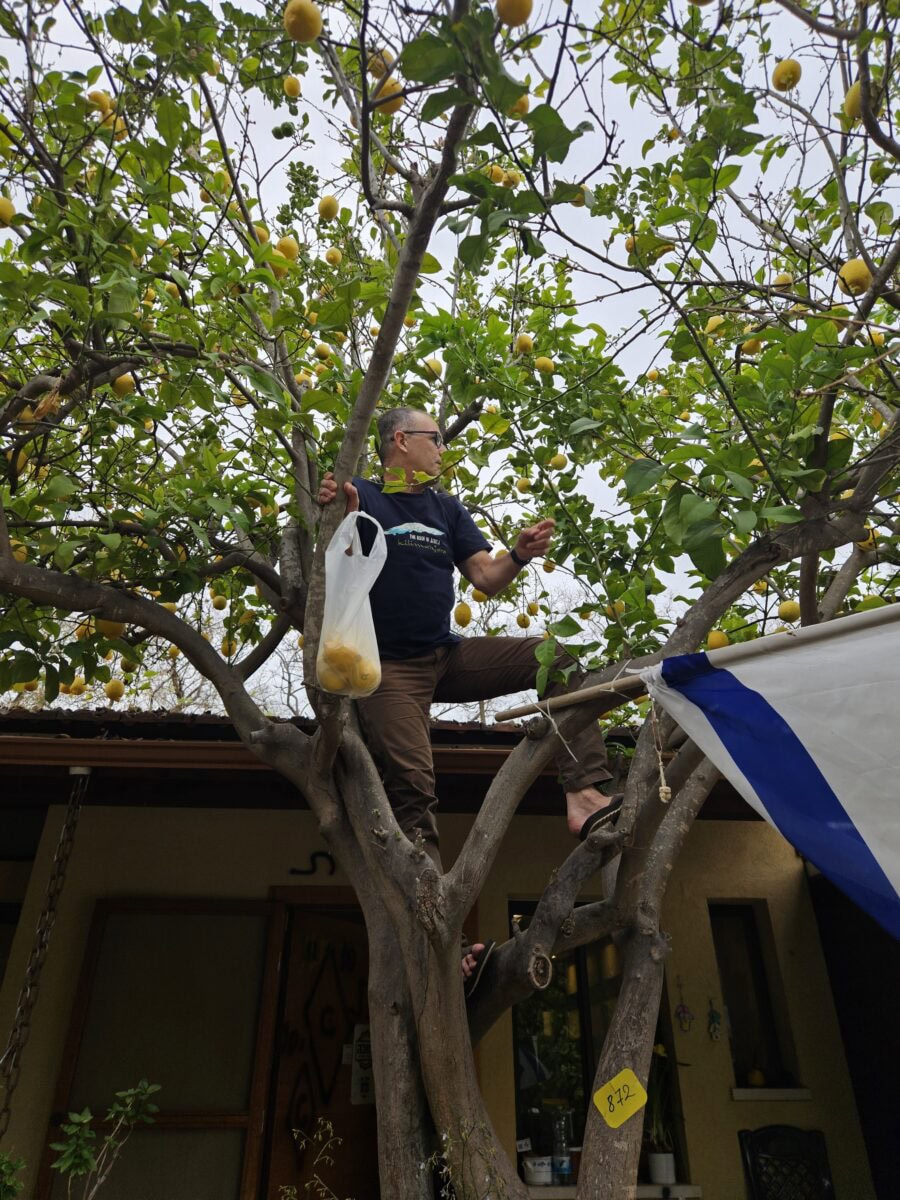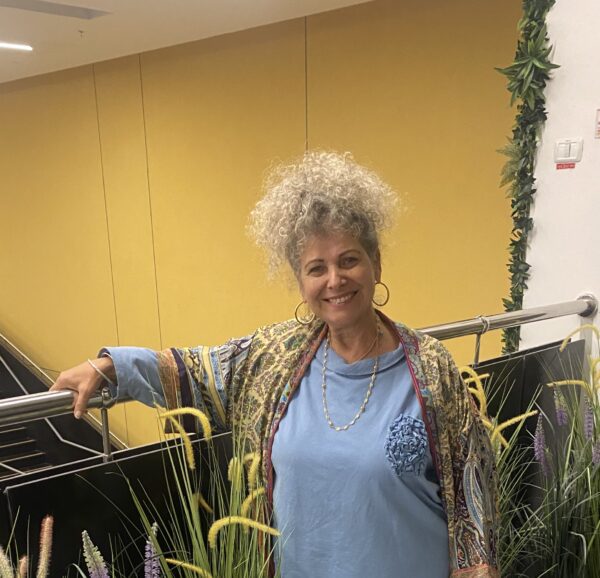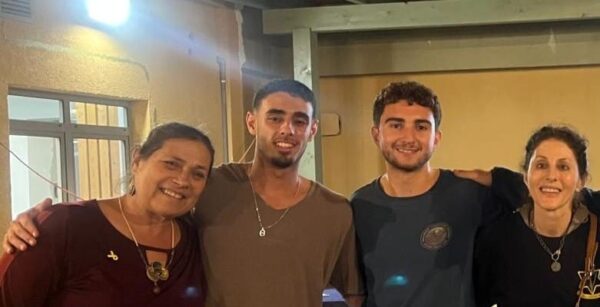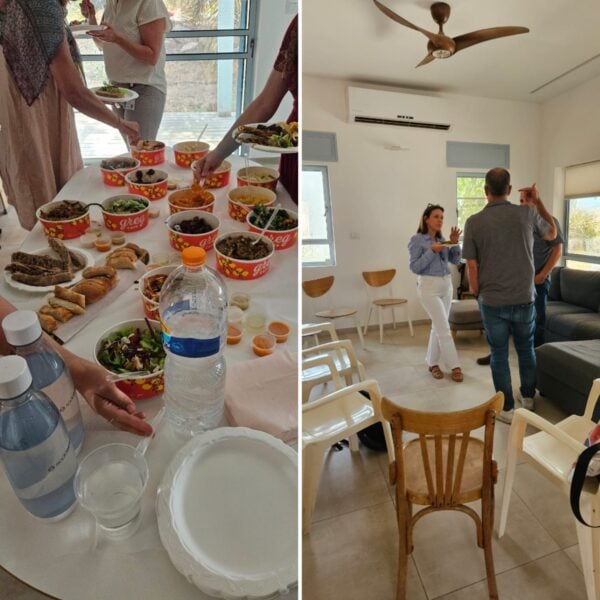A Volunteer’s Unexpected Lesson in Choosing Less
Adapted from the Substack Blog by Karen Garvish, Kfar Aza
Life Between Two Worlds
In the midst of a fragmented routine between two homes – one in Newton, Massachusetts, and one in the recovering kibbutz of Kfar Aza – volunteer Karin Gavish found herself learning something profound over shawarma.
Karin, one of a growing number of professionals volunteering in southern Israel as part of Elul’s Shnat Sherut 50 Plus initiative, splits her time between supporting schoolchildren, engaging with the local community, and reconnecting with her own rhythms of daily life.
A Detour for Shawarma, A Moment of Clarity
On one quiet Tuesday afternoon, she offered a ride back to the kibbutz to a fellow volunteer. What seemed like a small errand – picking up lunch – turned into a gentle reminder of how healing can come from simplicity.
“On the way home, she requested that we make a little detour to pick up what’s rumored to be the best shawarma in the country – since I don’t usually eat meat, I had to trust her and Noni when they said it was delicious.”
The Choice Not to Cook
But the story wasn’t really about shawarma. It was about choosing how to spend one’s energy, and how volunteers – many of them in their 50s, 60s, and beyond – are quietly navigating the balance between service and self-care in the shadow of October 7.
“She told us how much she loves to cook – that at home, she makes all kinds of delicious dishes, lots of variety, lots of flavor. But she made a decision about her time here as a volunteer: she’s not maintaining another kitchen.”
Instead, her fellow volunteer eats out on all her volunteer days. For her, it’s about preserving energy for the important work – mentoring children, supporting teachers, helping the community feel whole again.
Small Acts of Support
“I loved her approach: eating out as a way to keep things simple and support the local economy, even if just in small ways.”
Karin found herself relating. She and her husband, Noni, hadn’t really settled into a regular cooking routine in Kfar Aza either.
“We haven’t really stocked up on pantry staples yet – not enough to make cooking actually fun – and with our back and forth, we’re still not totally organized when it comes to fresh groceries.”
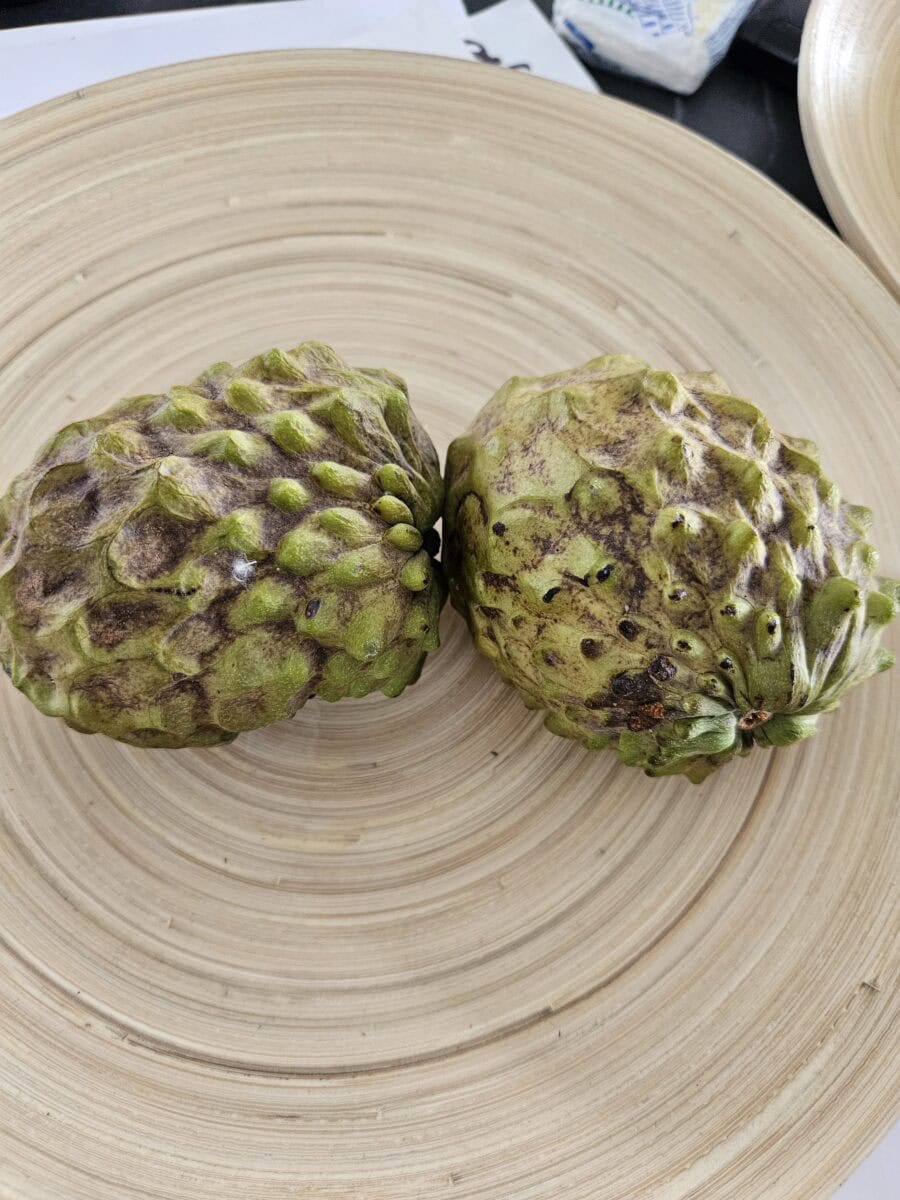
Finding Nourishment Outside the Kitchen
Yet, even in the absence of home-cooked meals, there’s comfort to be found. The small eateries scattered throughout the surrounding kibbutzim and towns – cafés, hummus stands, falafel joints – offer not just sustenance but a connection to the rhythms of local life.
And every Tuesday, the nearby Kibbutz Ruhama hosts a bustling farmers’ market – a slice of normalcy, packed with fresh produce and the energy of neighbors reconnecting.
“There’s a farmers’ market every Tuesday at Kibbutz Ruhama, packed with fresh fruits and veggies. I’m hoping that becomes our go-to for tasty produce – and maybe a step closer to feeling a little more at home here.”
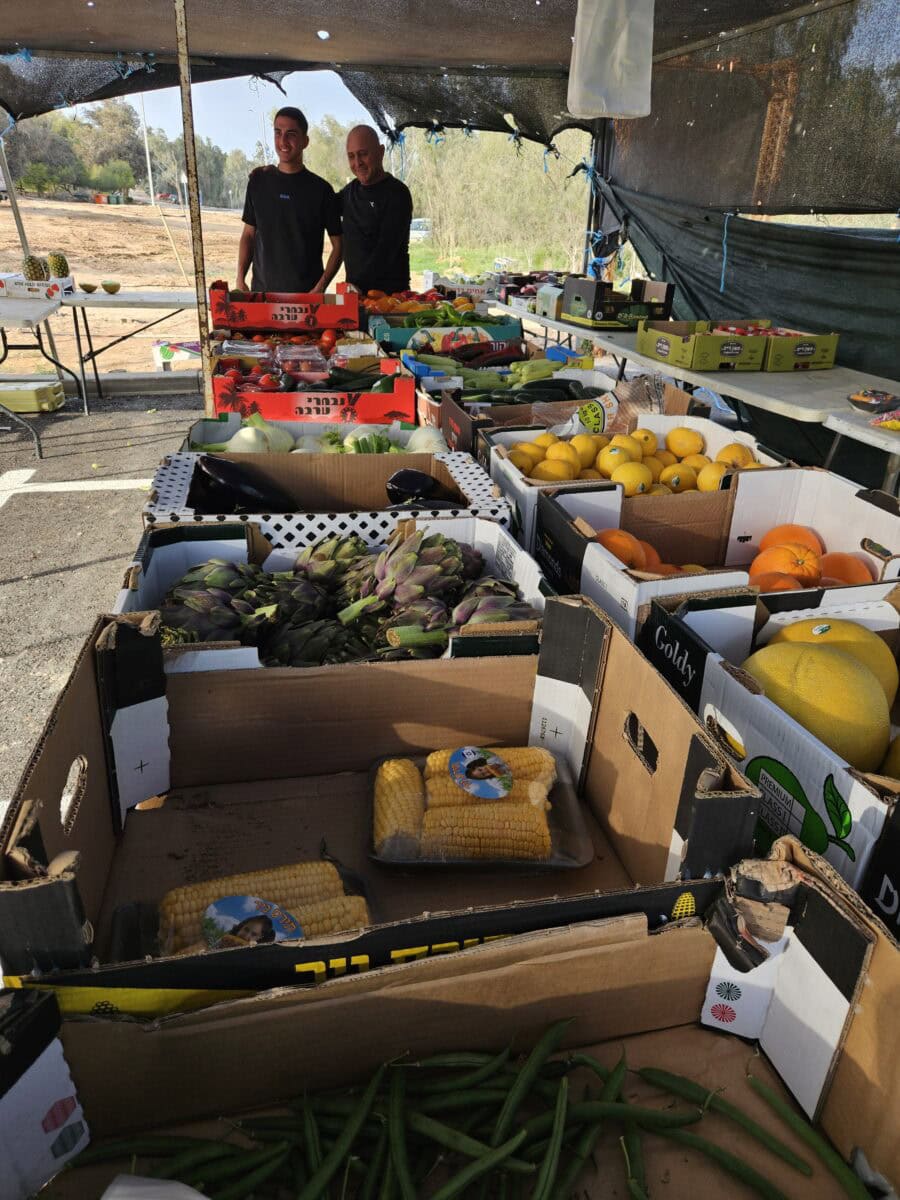
Serving with Strength and Simplicity
The volunteers living in Kfar Aza are not tourists. They’ve committed to a full year of service in the community, living side by side with residents who are rebuilding their lives after unimaginable trauma. They fill gaps in education, offer companionship to the elderly, support local resilience initiatives, and – as Karin’s post reminds us – they also learn from each other.
For some, volunteering means rolling up your sleeves in the classroom. For others, it means recognizing that some things – like maintaining a second kitchen – are best left behind.
Because sometimes, the most nourishing part of the day isn’t the food on your plate – it’s the clarity that comes with choosing simplicity.
